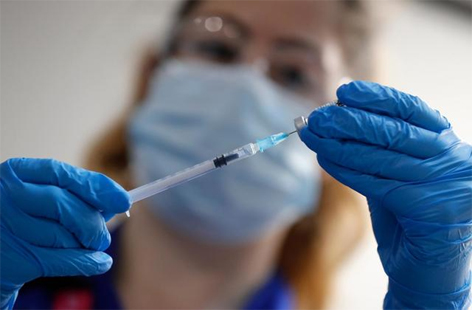LONDON, Dec 9:
Britain’s medicines regulator today issued a warning for people with “significant” history of allergic reactions to medicines, food or vaccines to not have the Pfizer/BioNTech jab, a day after the first set of patients were administered their first of two doses of the vaccine against COVID-19.
The warning comes after two National Health Service (NHS) workers experienced “anaphylactoid reaction” symptoms shortly after being injected, but are now said to be recovering well.
NHS England said all its trusts involved with the mass vaccination programme have been informed and from today, all patients scheduled to receive the vaccine will be asked if they have a history of allergic reactions.
“As is common with new vaccines, the MHRA have advised on a precautionary basis that people with a significant history of allergic reactions do not receive this vaccination after two people with a history of significant allergic reactions responded adversely,” said Professor Stephen Powis, medical director for the NHS in England.
An anaphylactoid reaction tends to involve a skin rash, breathlessness and sometimes a drop in blood pressure and both the NHS workers who experienced this are said to have a history of serious allergies and carry adrenaline pens around with them.
“We have been advised by MHRA [Medicines and Healthcare products Regulatory Agency] of two yellow card reports that may be associated with allergic reaction due to administration of the COVID-19 BNT162b2 vaccine,” Pfizer UK said in a statement.
“As a precautionary measure, the MHRA has issued temporary guidance to the NHS while it conducts an investigation in order to fully understand each case and its causes,” it said.
Dr June Raine, the head of the MHRA, told a joint select committee hearing on Tuesday that “real-time vigilance” will continue throughout the vaccine rollout process.
“We know from the extensive clinical trials that this [allergy] was not a feature, but if we need to strengthen our advice now that we have had this experience in vulnerable populations, the groups selected as a priority, we get that advice out immediately,” she said.
Experts have indicated that such reactions are to be expected in rare cases with any vaccine, including the annual flu vaccine. (PTI)
Trending Now
E-Paper


